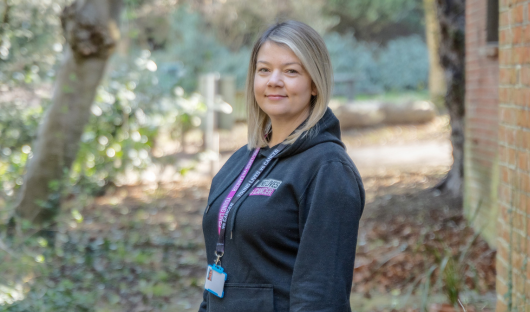How do I support myself?
The prospect of 'self-care' at this time must seem completely counter-intuitive. It's normal to want to devote every moment to your child, or their siblings. Remembering to put yourself first sometimes isn't selfish. It can give you the boost you need to get through the day and be present with your child.
Why it’s hard
For parents and carers of a child with cancer, life changes at diagnosis. For a long time now, you may have been at your child’s side through treatment, or holding the fort at home, while dealing with the turmoil and complex emotions that this ‘new normal’ brings.
Unfortunately for many parents, self-care is one of the first things to go out the window. Between caring for your child, their siblings, your partnership, other relatives, and staying at the hospital or working overtime to keep paying the bills – you might feel that there is simply no time left to take care of yourself.
It’s also common for parents and carers to tell themselves “I can’t leave my child’s side”, “I don’t have time” or “it would be selfish of me”. While this may be how you feel, it’s good to question whether this is always truly the case. It’s likely you’ll have a good network of people around you – whether professionals at hospital or loved ones – who could step in for short periods of time just so you can cover the basics, like eating a good meal, catching up on sleep, getting some exercise, having a bath or connecting with your partner, or a good friend.
Just doing these self-care fundamentals will help you to feel more energised and able to cope day-to-day.
Dealing with loss before death – anticipatory grief
Being told your child isn’t going to get better will be one of the hardest things you’ll ever hear. There is no ‘normal’ way to react and any feelings or numbness you’re experiencing right now is natural under these unthinkable circumstances.
Grief comes in many forms, and ‘anticipatory grief’ is something you may have already experienced. It’s linked to loss – a loss of your child’s independence, a loss of stability, a loss of your identity, and any other losses that have come from your child’s illness as it has progressed.
You might have felt sadness, anxiety, anger, isolation, dread, forgetfulness or depression. These feelings can be difficult to deal with, especially when they are combined with the other stresses that come with caring for your child. When you are told that your child’s treatment is no longer to cure them, these feelings might become much more intense. You might not be able to stop yourself from imagining the future, or find yourself waiting for the inevitable to happen.
Remember to not beat yourself up over how you’re feeling. If you are grieving, or planning for the end of your child’s life, it doesn’t mean that you are giving up.
What you are feeling is completely natural. Living with uncertainty, shock and sorrow can take a huge emotional toll though, so it’s important that you get support for yourself too.
What else you can do to take care of yourself
Connecting with others going through similar experiences is something that other parents often find helpful. Your social worker or someone in the team caring for your child might be able to point you in the direction of local groups or online forums where you can talk to others who will understand what you’re going through. You could also look into getting counselling for some extra professional support, tailored to you.
Take advantage of the people around you who want to help – reach out to friends and family who can give you a shoulder to cry on, or a listening ear so you can vent. They could take on some practical tasks for you, like childcare or household chores. This could help free up some time that you could spend taking care of yourself.
Taking time out to care for yourself doesn’t necessarily mean booking yourself into a spa – it can simply be getting some time alone, whether that’s going for a walk, having a nice long bath or watching something on TV. It could be meeting up with a friend or catching up with a hobby.
It’s easy to become consumed by what’s happening, but taking a few minutes for yourself here and there can help you to have more energy and feel just a little bit more resilient so that you can focus on the special time you and your child are spending together.
This short film from the Courageous Parents Network shows grief counsellor Nancy Frumer Styron talking about the importance of self-care and offers some simple suggestions for self-care.
More about self-care
- A parents’ guide to self care by the Courageous Parents Network
- Anticipatory Grief: The minute you get information, all these feelings arise by the Courageous Parents Network
You might also find this helpful
Do I carry on with everyday life or make special times?
Finding a balance between carrying on with everyday life and making special memories.
Read morePalliative care – what it really means
Why palliative care might not mean what you think and how it could benefit the whole family.
Read moreSpecialist social workers
We’re there when you need us most. Our specialist social workers help with the everyday challenges cancer brings.
Read more